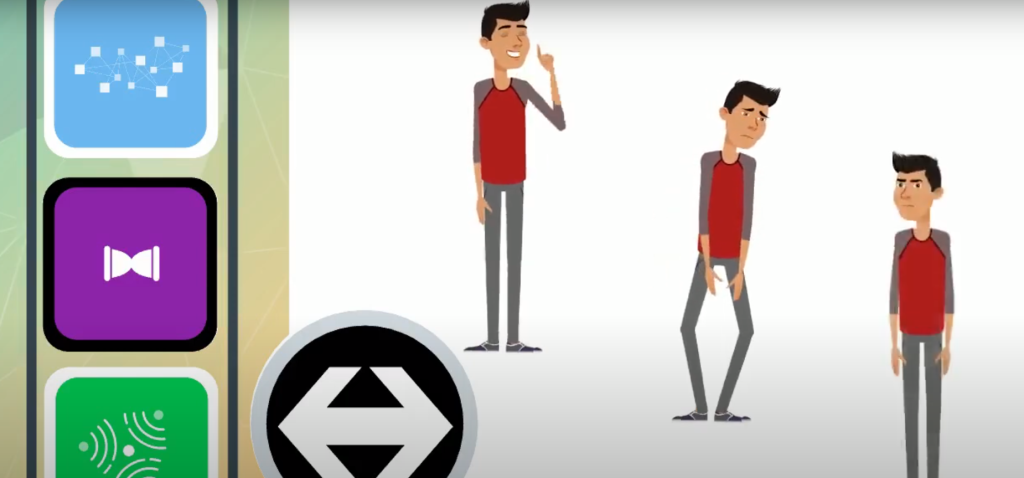What better way to present a philosophical idea than in animated videos?
Check these 4 explainer videos, some deep philosophical points are addressed:
1- Explainer video about existence:
This is video about an entirely new way to understand human behavior. It starts at the very beginning right where all theories should start. This theory, for example, starts with existence itself. First things first: Existence has a rigorously “logical” structure, and since you exist, you share its characteristics. Here’s how the structure works. The structure that guides us all is made of three fundamental imperatives. The first imperative deals with relationships. Everything that exists has to relate to its environment and its environment has to relate to it. In other words, everything that exists, like you do, must be involved in (Relational activity) or it can’t exist at all. This is because nothing can exist alone. Check it out. It’s just not possible. The second imperative is about the future, and how things must continue being what they are. Whatever exists, has to continue being what it is (continuance) or, quite naturally, It can be no more; kaput! finished! This is because what can’t continue existing…well… can’t continue existing! The last imperative is about the structure’s need for relational echo. Everything that exists and is alive, like you and I are, has to receive confirmation from whatever it relates to, (confirmation) or we all get in trouble again; big time! That doesn’t’ mean confirmation has to be conscious; it just has to ‘be’. Relational confirmation is what completes our structural obligations.
2- Explainer video about inter-human demand and relation:
3- Explainer video about contradiction:
The existential structure that we all share has one important weakness. Just like logic itself, it will not tolerate contradictions, and yet, our daily lives are ‘full of them’. The structure of existence won’t accept contradictions because it can’t. Logic rejects contradiction and since you exist, you do too. This is why structural contradiction affects you as much as it does. Existential contradiction affects who you are psychologically, physically, and spiritually. This is because existence is designed to be structurally logical so when, all of a sudden, it’s not…you feel it…. sometimes in small almost imperceptible ways…. but other times, in ways that can send you off on any number of emotional adventures. For example, when you need something you can’t have, you’ve been criticized for the person that you are, or… you lose something that is dear to you, you’re going to react emotionally. Why? Because, those events, and thousands of others just like them, contradict the existential structure that we all share. Of course, we humans won’t always react in exactly the same way to contradiction. After all, contradictions come in all sizes and shapes. No matter what, when contradiction strikes, we humans will react. We have to. That’s what human psychology is all about. It’s about the way all living things respond to structural contradiction.
4- Explainer video about the human self:
The Human ‘Self’ “Now… let’s talk about your ‘self’” “Because your life is guided by the existential imperative of confirmation, so is your ‘self’. Your ‘self’ is the most intimate part of who you are, yet your ‘self’, in reality, doesn’t come from you at all. It comes from the relationships you have with the world around you. In other words, your ‘self’ is not born from with-in…. it’s born from with-out.” “Much like the human eye that can’t see its ‘self’ without its image being reflected back to it…you can’t experience “your” ‘self’ without its content being confirmed, echoed, or reflected back to you from every ‘thing’ and ‘everyone’ around you. In other words, without those around you constantly echoing back to you their impression of who they think you are, or you imagining what that echo might be, you can have no ‘self’, nor identity. Actually, without that echo, you can’t exist at all. That’s the reason why you cling as tightly as you do to what you think others think of you. Your very life depends on it.” “Now then…, sometimes, what you imagine or know others think about you contradicts the person you really are. And, when that happens, inner conflicts occur.” “If, for example, you sense that what others think of you is positive, or confirms your intentions, all will be well. However, if you sense that the relational echo that you receive or imagine contradicts your self-image, not only will your general psychological status be affected, but so will your behavior.” “All in all, the way your ‘self’ is constructed comes directly from what you think, speculate, suppose or actually know that others think of you. Most of the time, your ‘self’ is the result of a whole lot of guess work with just a sprinkling of random facts mixed in for good measure. Indeed, our selves are the most imperfect part of our psyches and yet, without them, we couldn’t exist at all.”

